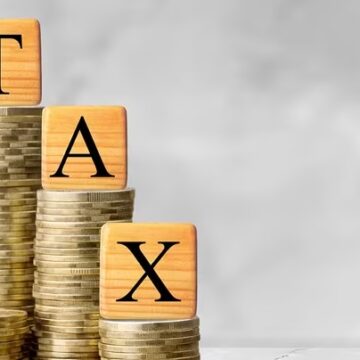The stock market has a very low barrier of entry. Almost anyone can own a publicly traded company’s stock and potentially grow their own investment account. Actively trading and investing in a successful company’s stocks helps to diversify your ability to create income instead of selling your time for money at a job.
Company Raises Funds
Companies in India raise money when they go public by selling their stock on the stock market through an Initial Public Offering. If a company has an IPO for 1 crore shares offered at ₹20 a share, then they will take in ₹20 crores if the market buys all their stock at the offering price. Once a company takes in the money from their initial share of stock through the IPO, their shares trade on the open market and the price is determined by what investors and traders are willing to pay for the stock at any given time. The value of a company is set by the price of the stock multiplied by the number of shares of the stock that were issued. If a company has 1 crore shares of stock and the price of the stock is ₹100 per share, the company market capitalization is ₹100 crores, meaning the company is worth ₹100 crores.
Stock Valuation
The company doesn’t determine the value of its stock in India, the market does. The price of a stock is set by the last traded share price, because the stock market is essentially an auction where there is a ‘bid’ and an ‘ask’ price at any given time. The ‘bid’ is what someone is willing to buy the stock for, and the ‘ask’ is what someone is willing to sell the stock at. When the stock is physically traded, that becomes the stock price. That’s how to invest in the stock market begins for public in open market.
How Shares are Opened in the Market?
The company is separated from the buying and selling of its own stock unless it issues a stock buyback program. During a buyback, a company will go on the open market and buy its own shares and lower the share float available for trading and investing. Share float is the actual number of stocks available for trading at any one time.
The company is separated from the buying and selling of its own stock unless it issues a stock buyback program. During a buyback, a company will go on the open market and buy its own shares and lower the share float available for trading and investing. Share float is the actual number of stocks available for trading at any one time. A company can also issue dividend payments to reward investors with a share of company earnings. Dividends are usually paid four times a year (quarterly) on stocks. A dividend stock’s yield is determined by the amount of their annual dividend payments divided by their current stock price. A trader can use best share market app to know latest company status. If a company pays four annual dividends a year at ₹1 each for ₹4 in total annual dividends, and the stock price is ₹100, then the stock’s yield is 4%.
Why Next Offering is Negative?
Additionally, the company could also have a secondary offering of stock to raise additional capital, but this brings more supply into the market and dilutes the existing shares. A secondary offering is looked at negatively because it shows the company needs to raise more capital because it doesn’t have adequate cash flow inside the business to operate.
Stock traders can download best stock market app and start trading in India.
















